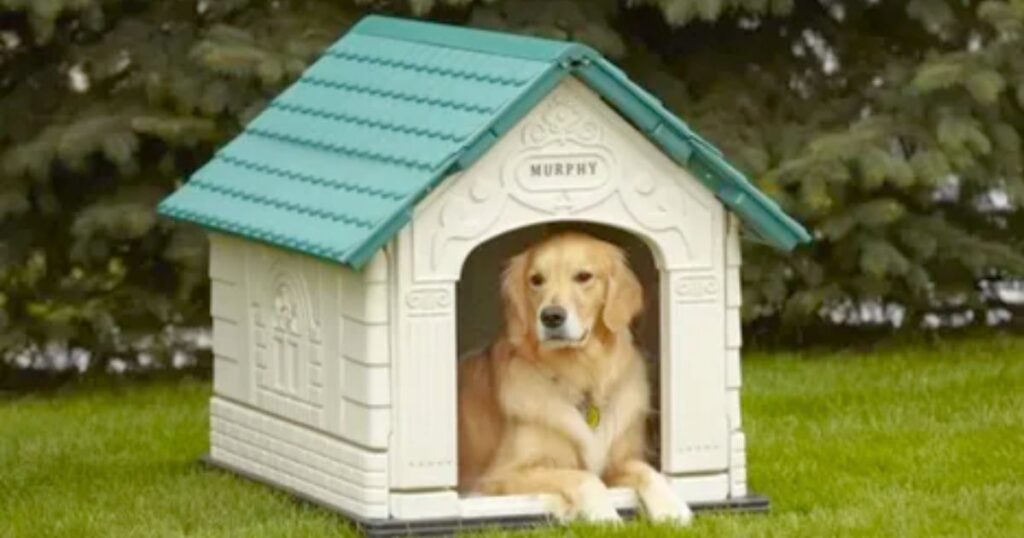Neutering is a common veterinary procedure involving the surgical removal of a male dog’s testicles under general anesthesia. This process reduces the testosterone levels in dogs which can affect certain behavioral issues. This operation helps decrease certain unwanted behaviors linked to the prostate gland and testicular cancer. If you’ve noticed behavioral changes like marking, straying, humping, and aggression it might be time to consider neutering your dog.
By removing the testicles the dog’s sexual needs are reduced and they won’t be as interested in humping or reproducing. After being neutered the dog might stop humping altogether. So, neutering helps control their reproductive instincts and can also control humping and sexual behavior itself. it may be the best choice for your furry friend’s long-term health and happiness.
Neutering can also lead to positive changes in your dog’s behavior. It often reduces or removes unwanted behaviors such as aggression, urine marking, roaming tendencies and excessive swelling. It’s a responsible decision that contributes to the overall welfare of your furry friend. Neutering may be slightly uncomfortable for your dog but it’s completely safe and necessary for their well-being.
Benefits of Dogs Neutering

The benefits of neutering are numerous. It helps control the pet population reducing the number of stray animals. It also decreases the risk of certain health problems like uterine infections and testicular cancer. Neutered pets often exhibit less aggressive behavior making them safer companions. They are less likely to roam or exhibit territorial marking behaviors. Neutering can also reduce the urge to fight with other animals decreasing the risk of injury and infection.
It helps in managing pet overpopulation which can strain animal shelters and resources. Neutered pets tend to be more focused on their human families making them easier to train and bond with. They may also live longer healthier lives due to reduced risks of reproductive-related diseases. It can also help reduce certain behaviors like urine spraying and mounting. Neutering is a responsible choice for pet owners contributing to the overall well-being of animals and communities. It is a simple procedure with long-lasting benefits for both pets and their owners.
Is Neutering Painful?
The process of neutering can vary from one animal to another but it is generally not painful for them. The procedure is typically done under anesthesia, so they don’t feel any discomfort during it. Afterwards they might experience some mild soreness or discomfort but this usually subsides quickly. It’s important to follow post-operative care instructions provided by the veterinarian to ensure their comfort and speedy recovery. They may need to wear an Elizabethan collar to prevent them from licking or biting the surgical site. They might also receive pain medication to manage any discomfort they might feel.
It’s a routine procedure that helps control the pet population and can prevent certain health issues. They might be a little groggy or lethargic for a day or two after the surgery but this is normal as their body adjusts. It’s essential to provide them with a quiet and comfortable space to rest during their recovery. They may also need to have their activity restricted for a few days to allow the incision site to heal properly. While there may be some discomfort associated with neutering it is generally a safe and relatively painless procedure for them.
Here are 15 Signs your Dog might need to be Neutered.
Urine Marking
The act of urine marking is a sign that a dog has been neutered. It is a behavior where dogs leave small amounts of urine on vertical surfaces to communicate with other dogs. They do this to establish territory or convey information about themselves. It helps them leave their scent in different areas. They may do it more often when they are anxious or stressed. It is a common behavior in both male and female dogs. It’s important to understand that neutered dogs can still have urine marks.
The act of urine marking is a common behavior among dogs, especially in males. They may do it less normally compared to intact dogs but it can still happen. It’s a natural behavior rooted in their instinct to communicate and mark territory. Neutering can help reduce this behavior in some dogs but it may not eliminate it. Providing proper training and environmental enrichment can also help manage urine marking in neutered dogs. Understanding this behavior can help dog owners address it effectively.
Dog Straying or Roaming

The idea that straying or roaming is a sign dogs need to be neutered is important. The reason for this is that when dogs wander, they can get into trouble. It can also lead to unwanted litters of puppies. Neutering helps prevent this. It’s a simple surgery that stops dogs from reproducing. The procedure is safe and commonly done by veterinarians. It also has health benefits for the dogs. They are less likely to develop certain cancers. It also reduces behaviors like marking territory and aggression. It’s a simple procedure that has long-term benefits for the dog’s health and happiness.
The decision to spay or neuter pets is crucial for their health and well-being. Neutering can also make them more focused on their owners. It’s a responsible choice for pet owners to consider. It also improves their behavior at home, making them more manageable companions. Neutered dogs tend to be more focused and less driven by hormonal urges. They should think about the long-term welfare of their dogs. It’s not just about preventing puppies but also about keeping dogs healthy and happy. So, if your dog is straying a lot neutering might be the right choice for them.
Humping or Mounting
The humping or mounting behavior in dogs is often a clear indication that they need to be neutered. The act of humping is a natural behavior for dogs, but when it becomes excessive or directed toward objects it may signify underlying hormonal urges. The behavior can be embarrassing for pet owners and uncomfortable for guests. Neutering also known as spaying or castration can help control these urges and reduce the frequency of humping. It is a simple surgical procedure performed by veterinarians.
Neutering not only curbs mounting behavior but also prevents certain health issues and helps in controlling the population of stray dogs. The decision to neuter a dog should be made responsibly considering factors like age, health, and behavior. It’s important to consult with a veterinarian to determine the best course of action. Neutering is a common practice that contributes to the well-being of both individual dogs and the overall dog population. It is a responsible step towards being a caring and conscientious pet owner.
Aggression
The aggression shown by dogs can often indicate they need to be neutered. It is a common misconception that aggression in dogs is solely a result of their breed or upbringing. However, it is crucial to understand that aggression can stem from hormonal factors, particularly in intact male dogs. They may display territorial behavior or react aggressively towards other animals or humans. Neutering is a simple surgical procedure that can significantly reduce such aggressive tendencies. It is also important for controlling the pet population and stopping more litter.
Neutered dogs tend to be calmer and more manageable companions. They are less likely to engage in destructive behaviors or roam in search of mates. Neutering can also decrease the risk of certain health issues in dogs such as testicular cancer and prostate problems. It is recommended to neuter dogs at a young age to maximize their behavioral and health benefits. Talking about aggression through neutering not only improves the individual dog’s quality of life but also contributes to safer communities for both humans and animals.
The house smells like pee

The house smells like pee a sign of a dog needing to be neutered. It’s a strong odor, lingering in every corner. They tell a tale of a furry friend marking territory. It’s time for action for the sake of cleanliness and the dog’s health. The stench fills the air, unmistakable and unpleasant. It permeates everything from the rugs to the curtains. They indicate a need for responsibility for the pet’s well-being. It’s not just a matter of hygiene it’s about caring for our furry companions.
It’s a reminder of the duties that come with pet ownership. Something needs to change. They prompt us to seek out solutions for the sake of our home and our four-legged friend. Neutering can help curb this behavior making the home a more pleasant place for everyone. It’s a small step with big benefits. They serve as a signal, urging us to take action before the situation worsens. It’s time to address the issue and restore harmony to our living space.
Risk of testicular cancer
The risk of testicular cancer is a serious concern for dogs who haven’t been neutered. It’s important to address this issue for their well-being. The procedure can significantly reduce the chances of developing this type of cancer. It’s a common practice recommended by veterinarians. It’s a simple surgery that can have long-term benefits for the dog’s health. It’s a decision that pet owners should consider carefully. It’s about ensuring a healthier and happier life for their furry friends.
It’s a responsibility that comes with pet ownership. It’s a way to prevent potential health complications down the road. It’s a proactive measure that shows care for the dog’s welfare. It’s a decision that can positively impact their quality of life. It’s a choice that can bring peace of mind to pet owners. It’s a step towards promoting overall well-being for dogs. It’s a precautionary measure worth taking. It’s a way to minimize health risks and ensure a longer lifespan. It’s a decision that reflects a commitment to the dog’s health and happiness.
Genetic defects
The genetic defects in dogs can sometimes be a sign that they need to be neutered. It’s important to understand that genetic defects can be passed down to offspring if not addressed. Neutering dogs can prevent these defects from being inherited by future generations. It’s a responsible decision that owners can make for the well-being of their pets and to prevent potential health issues. Neutering is a simple procedure that can have long-lasting benefits for both the dog and its future offspring. It helps in controlling the population of unwanted puppies and reduces the risk of certain diseases.
Neutered dogs tend to be calmer and less likely to roam or exhibit aggressive behavior. It also reduces the risk of certain cancers and infections in dogs. Neutering is commonly recommended by veterinarians as part of responsible pet ownership. It’s a proactive step that can contribute to the overall health and happiness of dogs. Owners should consult with their veterinarian to determine the best time for neutering their pets. Taking this step can contribute to a healthier and happier life for dogs.
Also Read This Blog : Wellhealthorganic.com Morning Coffee Tips with No Side Effect
Overpopulation of Dogs
The overpopulation of dogs is a sign that dogs need to be neutered. The increasing number of stray dogs is concerning. It poses various problems for communities. It leads to overcrowded shelters and streets. It also contributes to the spread of diseases among dogs and sometimes even to humans. Neutering dogs can help control this problem. It’s a responsible choice for dog owners. It’s important to spread awareness about the importance of neutering dogs. It can help reduce the number of dogs in need of homes.
It prevents unwanted litters from being born. It also reduces the number of homeless dogs roaming the streets. Neutering dogs is a responsible decision for pet owners. It helps in humanely managing the population of dogs. They also enjoy health benefits from neutering. They are less likely to develop certain cancers. It also decreases their tendency to roam and exhibit aggressive behavior. Neutering is a simple procedure with long-term benefits for both dogs and their communities. It’s a step towards a more balanced and healthy dog population.
Enlarged Prostate Gland
The enlarged prostate gland is a sign of a dog needing to be neutered. It can cause discomfort and health issues for the dog. It happens because the hormones in the dog’s body aren’t balanced. The dog’s prostate gland gets bigger than it should be. They might have trouble peeing or pooping because of this. It can also lead to infections and pain for them. They might feel tired or not interested in playing like they used to. Neutering can help with this problem.
It’s a surgery that removes the dog’s reproductive organs. It’s safe and commonly done by veterinarians. It can prevent future health problems for the dog. It also helps control the dog population. It’s important to talk to a vet if you notice any signs of an enlarged prostate gland in your dog. They can give you advice on the best course of action. Taking care of your dog’s health is essential for their well-being and happiness.
Restlessness And Stubbornness

The restlessness and stubbornness seen in a dog can often be signs that it needs to be neutered. It’s not just about controlling the pet population but also about improving their behavior and overall well-being. They might display excessive pacing, whining, or even aggressive behaviors. It’s important to understand that these behaviors are often linked to hormonal urges that can be mitigated through neutering. It’s not a punishment for the dog but rather a way to help them lead a happier and healthier life.
Neutering can significantly reduce the urge to roam which is a common behavior among intact male dogs. It also lowers the risk of certain health issues like testicular cancer and prostate problems. They may become less fixated on mating and more focused on other aspects of their life, such as play and companionship. It’s a decision that should be made with the guidance of a veterinarian taking into consideration the individual dog’s health and behavior. The procedure is generally safe and routine with minimal risks involved. It’s a responsible choice that benefits both the dog and the community.
Scrotum Rashes
The scrotum rashes on a dog can be a sign that it needs to be neutered. The rashes might appear red, swollen, or itchy. It could bother the dog and make them uncomfortable. They might lick or scratch at the area a lot. It could also lead to infections if not treated. Neutering the dog can help prevent these rashes. It’s a simple surgery that removes the testicles. It can make the dog healthier and happier. They might experience some discomfort after the surgery, but it’s temporary and well worth the long-term benefits.
They won’t have the urge to mate anymore. It also reduces the risk of certain cancers. It’s important to consult a veterinarian if you notice any changes in your dog’s scrotum. They can provide the best advice and treatment options. Neutering is a responsible choice for pet owners. It helps control the pet population and improves the dog’s quality of life. It’s crucial to follow post-operative care instructions provided by the vet to ensure a smooth recovery.
Vigorous Scent Detection
The vigorous scent detection of the female sign in dogs is a crucial indicator that they need to be neutered. Dog owners need to pay close attention to it. The scent detection abilities of dogs are remarkable they can detect even subtle changes in hormones. Neutering is a responsible decision that helps control the dog population and prevents unwanted litter. It’s important to consult with a veterinarian to determine the best time for neutering.
Neutering is a routine procedure that is generally safe for dogs. It’s a simple surgery that can have significant long-term benefits for their well-being. It also has health benefits reducing the risk of certain cancers and behavioral problems. It’s also a responsible choice for pet owners who want to contribute to animal welfare. Taking proactive steps like neutering helps ensure a happy and healthy life for dogs.
States that require Dogs Neutered

If you’re living in any state of the USA most likely you’ll have to get your male dog neutered. In 2008 USA put in place one of the country’s hardest neuters and spay laws. It says that most dogs and cats must be fixed by the time they’re four months old. But there are some exceptions. Dogs and cats that participate in shows or sporting competitions belong to professional breeders work as guide dogs or are used by the police are exempted from the requirement.
Animal shelters and similar places have to spay or neuter dogs before they are adopted in almost 32 states. If someone wants to adopt an unneutered male dog, they must usually sign an agreement. That states they promise to get the dog castrated by a licensed vet within 30 days of adoption.
Here are some states that require Dogs Neutered.
| State | Neutering Requirement |
| California | Yes |
| Connecticut | Yes |
| Delaware | Yes (for certain shelters) |
| Iowa | No specific statewide requirement, but some local ordinances may apply |
| New York | Yes (for NYC, some counties) |
| Florida | No specific statewide requirement |
| Georgia | Yes |
| Alabama | No specific statewide requirement, but some local ordinances may apply |
| Arizona | Yes |
| Arkansas | No specific statewide requirement, but some local ordinances may apply |
| District of Columbia | Yes |
| Colorado | No specific statewide requirement, but some local ordinances may apply |
Frequently Asked Questions
What is the best age to neuter a male dog?
The best age to neuter a male dog is typically between 6 to 9 months old although it can vary depending on breed and size.
What happens when a male dog is not neutered?
When a male dog is not neutered, they may exhibit behaviors such as roaming, marking territory and aggression. They are also at risk of reproductive health issues like testicular cancer.
Do male dogs change after being neutered?
Male dogs often experience behavioral changes after being neutered such as reduced aggression decreased roaming and less marking behavior.
Do neutered dogs live longer?
Neutered dogs may have a slightly longer lifespan due to a reduced risk of certain health issues but many factors influence a dog’s lifespan beyond neutering.
Conclusion
The signs indicating that a dog needs to be neutered are essential for responsible pet ownership. They serve as crucial indicators for the well-being of our beloved canine companions. It is important to recognize these signs early on to ensure the health and happiness of our pets. Neutering not only prevents unwanted litters but also offers numerous health benefits for dogs. It helps in reducing the risk of certain cancers and behavioral problems. They might exhibit behavioral changes such as increased aggression or territoriality.
It also curbs roaming tendencies reducing the chances of accidents or conflicts with other animals. It is crucial to observe any physical changes such as testicular increase or behavioral changes like mounting behavior which signal the need for neutering. They rely on us for their health and happiness and knowing the signs of needing neutering is an important part of satisfying that responsibility. It’s important to consult with a veterinarian to control the best course of action for each specific dog. Neutering not only benefits the separate dog but also contributes to the larger goal of reducing pet overpopulation.

Hello I’m Jack Wilson An Experienced Author I’m Writing About DOGS and TRENDING TOPICS with a simplicity that Relates with readers. My writing style carries Easy wording with Natural touch which makes My writing Engaging and Easy to Read.











